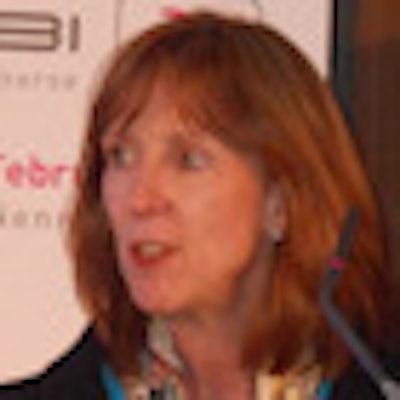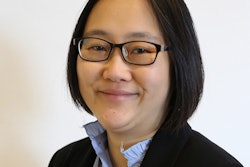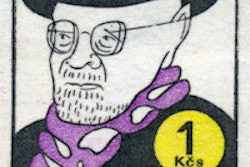
The conversion of paper- and film-based radiology records to an all-digital format has created an environment of unprecedented opportunities for research. Creating research opportunities, however, is easier said than done, and requires proactive support and careful planning, according to U.K. experts.
When the U.K. Royal College of Radiologists (RCR) recognized that research activity in radiology was lagging behind other specialties, it decided to try to counteract this trend. In 2010, its research committee and the Wellcome Trust, a London-based global charitable foundation dedicated to achieving extraordinary improvements in health, held a joint meeting to discuss what could be done.
 This is an exciting era for radiology researchers, according to Dr. Fiona Gilbert.
This is an exciting era for radiology researchers, according to Dr. Fiona Gilbert.
In conjunction with an article published in this month's edition of Clinical Radiology describing the meeting and the challenges identified with undertaking radiology research in the U.K., AuntMinnieEurope.com talked with Dr. Fiona Gilbert, chair of the RCR Research Committee, and Dr. Tom Booth, who chaired the RCR's trainee radiologist committee at the time (Clin Radiol, May 2012, Vol. 67:5, pp. 411-416).
Being able to conduct research is a challenge today for almost every medical specialty, due to workload pressures and financial constraints felt by healthcare organizations throughout the world in an economically strained global environment. A decline in academic medicine in the U.K. and throughout Europe has been well-documented since 2006, not just in clinical radiology and academic research, but in other medical specialties as well.
Justifying investments in radiology research
Participants at the RCR/Wellcome Trust meeting noted that while the number of consultant (or senior) radiologists has increased by more than 40% over the past decade, the number of academic radiologists has decreased by more than 50%. If this trend continued, it would erode the critical mass essential to perform research, a situation that would be detrimental to the radiology profession.
The RCR's position is that the computerization of medical images has fundamentally advanced research in this field by providing a foundation for quantification, allowing functions to be measured. With improved spatial and temporal resolution of images, radiologists can explore molecular medicine, offering the opportunity to identify new methods for improved screening, diagnosis, staging, and treatment of disease. The development and use of data mining tools to delve into RIS and PACS electronic records for analysis to improve healthcare are still in their infancy.
Research also stimulates technological innovation. Advances in medical imaging techniques, workflow management, and interpretation aids all benefit from the expertise of radiologists.
Identifying hurdles and overcoming them
The RCR's research committee identified several key reasons associated with a decline in research. These included the difficulty in attracting and involving young clinicians and medical students into undertaking basic research and testing, time constraints on clinicians and trainees to conduct research, excess bureaucracy, and difficulty in obtaining funding. Lack of radiology research mentors and lack of research training in the radiology curriculum also were identified.
Following the meeting, the RCR reformed and renamed its research committee. Gilbert, a professor of radiology at the University of Cambridge, was appointed its chair. She said the RCR Academic Committee has met regularly since, and that she is invited to participate in the activities of various committees of the college.
"The presence of a member representing academic research has increased awareness of the importance of promoting radiology research throughout the organization," she explained.
One of the most important actions undertaken has been the development of a national radiologist mentor database, as well as a database of research programs and projects being undertaken throughout the U.K. The database, which is expected to be accessible online through the RCR's website in the near future, is enabling the college to facilitate research links and make this information readily available to those who make inquiries.
Booth said he asked radiologist trainees to recommend people they thought would be suitable mentors to give impartial advice.
"There was a disconnect between who was doing the research and who was doing the imaging. We needed to get our act together as a group and pursue radiology research as a group. The project was a trainee-inspired venture by trainees for trainees," he noted.
"As a trainee whose goal is to become a specialist in neuroradiology, I was deeply concerned that a lot of neuroradiology research is being done by neurologists. What I thought was unfortunate is that a lot of neurology and cardiology trainees were doing this research but would not be applying what they learned in clinical practice. If radiologist trainees performed this research, they would be able to use the knowledge they'd obtained for the rest of their career," he said.
The academic committee also developed and sent a questionnaire to all academic radiologists in the U.K., asking them to complete a survey that would be used to develop a research project database. The survey included information about the radiologists and the facilities where they worked. It also asked what research projects they had undertaken and what were ongoing.
Dr. David Bowen, an academic clinical fellow in radiology at the University of Cambridge, was responsible for creating a database and an interactive map from survey responses. When this goes live, users will be able to see a map of the U.K. with dots marking radiology research sites. When a cursor is positioned over a dot, information about the researchers and research specialty will be displayed in a window, along with a hyperlink to access the departmental information and contact details.
The database will be kept updated. "It's an ongoing project," Gilbert said. "When someone calls to say that they are doing research or want advice, we can put them in contact with the most appropriate academic researchers. This isn't a research network per se, but its intent is to facilitate networking."
Other activities
Through the academic committee, the RCR is also actively promoting the availability of academic clinical fellow positions, of which there are 35 in England and Scotland. These are radiology trainee positions with 25% of the time reserved for academic research.
"After the first three years, participants will have completed their basic radiology training, but will have gained some research experience as well. Hopefully, this experience will better prepare its participants to apply for competitive funding for research programs or additional academic study to support a research-oriented radiology career," Gilbert said.
The RCR and the Wellcome Trust also sponsor an annual Research Day, to which all academic researchers are invited to attend. Next one is scheduled for 8 October, and the focus is on mentoring young researchers, providing a venue where they can meet leading academic researchers from around the world. Workshops also are conducted, with subjects that include public speaking skills, techniques for writing an acceptable peer-reviewed journal paper, and how-to advice to obtain funding and research grants.
"This is an exciting era for radiology researchers, because access to electronic records and images makes it possible to conduct projects that never would have been feasible or even possible in a paper- and film-based world," Gilbert concluded. "It's a great time for imaginative radiology researchers."



















